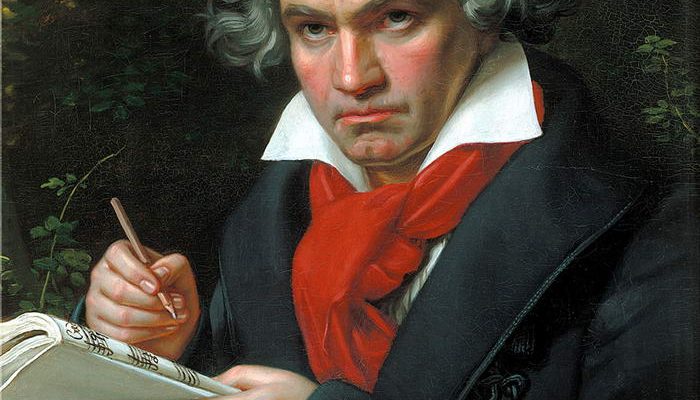Have you ever found yourself completely immersed in the harmonious tunes of a piano concerto or the rhythmic beats of a symphony? That, my friend, is the timeless allure of classical music. But what’s so special about classical music? For starters, it’s a universal language that transcends boundaries, speaks to the heart, and evokes deep-seated emotions. Historically, it has been a reflection of society, capturing the zeitgeist of different eras and bringing stories of old to life.
Now, let’s take a peek into the science behind it. Classical music is not just pleasing to the ears; it’s a boon for the brain. Studies have shown that these intricate compositions, penned down by most famous composers, stimulate the brain in unique ways. The complexity, the varying tempos, the crescendos – they all play a part in enhancing neural connections. In simpler terms, your favorite piece by a renowned classical composer can potentially boost memory, improve concentration, and even foster creativity. Quite the package, isn’t it?
Composers were inspired by love, nature, wars, sadness and happiness and some of them created works of art that will stay forever in our hearts. Here are 10 most famous composers of all times:
10 – Franz Schubert (1797-1828)
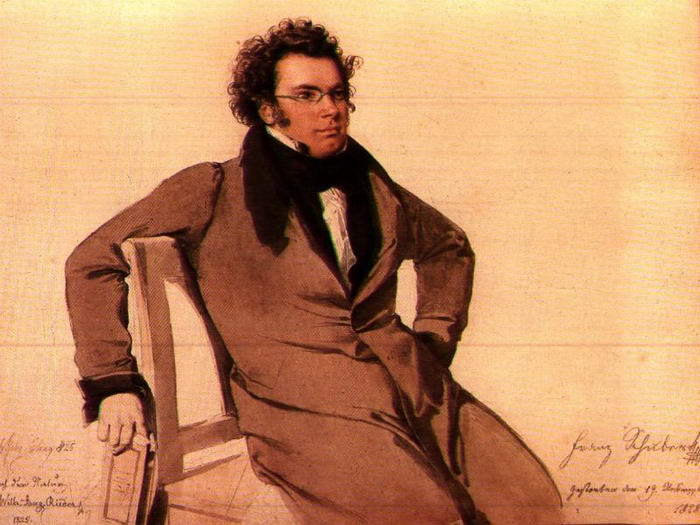
The story of Franz Schubert is one that showcases unparalleled talent, yet is tinged with the tragedy of a life cut short. Born in 1797 in Vienna, this musical prodigy was destined for greatness. His compositions encompassed a wide array of genres, from symphonies and chamber music to operas and lieder (German art songs).
Schubert’s music has a distinctive touch, blending melodic beauty with profound emotional depth. Take, for instance, his “Winterreise” song cycle. It’s a profound exploration of love, loss, and desolation, encapsulating the human experience. Furthermore, his Symphony No. 8, often termed the ‘Unfinished Symphony,’ stands as a testament to his genius. Left incomplete, it still mesmerizes with its haunting melodies and dramatic undertones.
While his career was on the ascent, fate had other plans. Schubert passed away at the tender age of 31. But his legacy? It’s immortal, captured in over 600 lieder, nine symphonies, and numerous chamber and piano works that continue to resonate with audiences worldwide.
09 – Johannes Brahms (1833-1897)
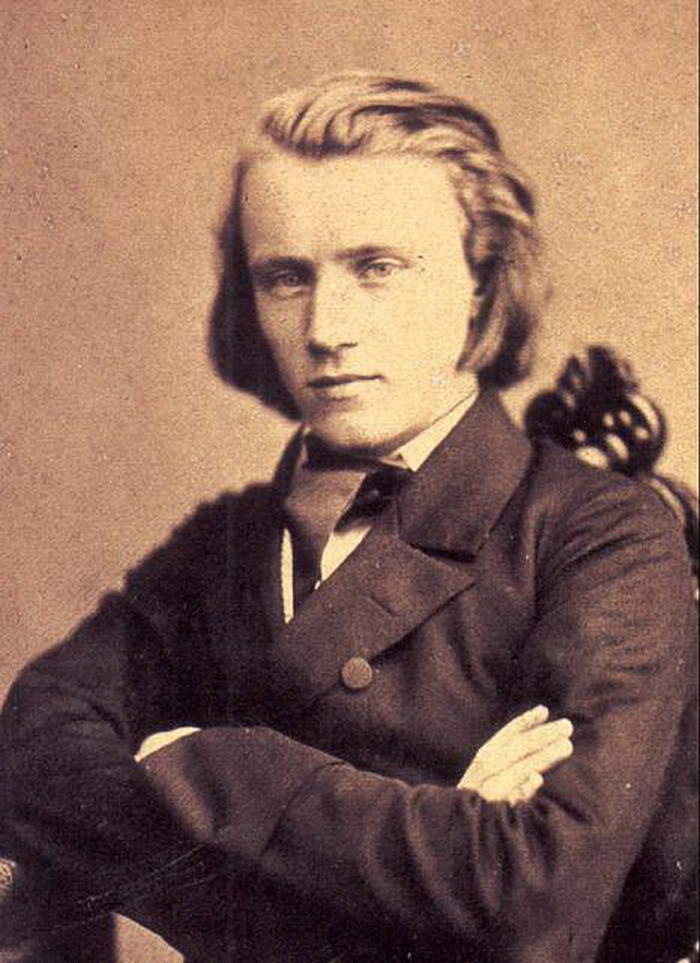
If there ever was a composer who embodied the romantic spirit in music, it was Johannes Brahms. Born in 1833 in Hamburg, Germany, Brahms was a self-taught pianist and composer. His journey is awe-inspiring, especially considering the fact that he started playing in dance halls to help his family make ends meet.
Brahms’ musical style was deeply rooted in classical traditions, yet he brought a freshness that made his compositions distinctly his own. His symphonies, particularly the Symphony No. 1 in C minor, often draw comparisons with Beethoven, showcasing the synthesis of classical structure with romantic expressiveness.
The ‘German Requiem’ is another feather in his cap. It’s not just music; it’s a spiritual experience, a composition that seeks to comfort the living rather than dwell on afterlife fears.
Brahms’ impact on music isn’t just confined to his compositions. He championed the works of his predecessors, ensuring that classical traditions were preserved and celebrated. A musical luminary, his contributions to symphonic and choral music have made him a revered figure in the world of classical composers.
08 – George Frideric Handel (1685-1759)
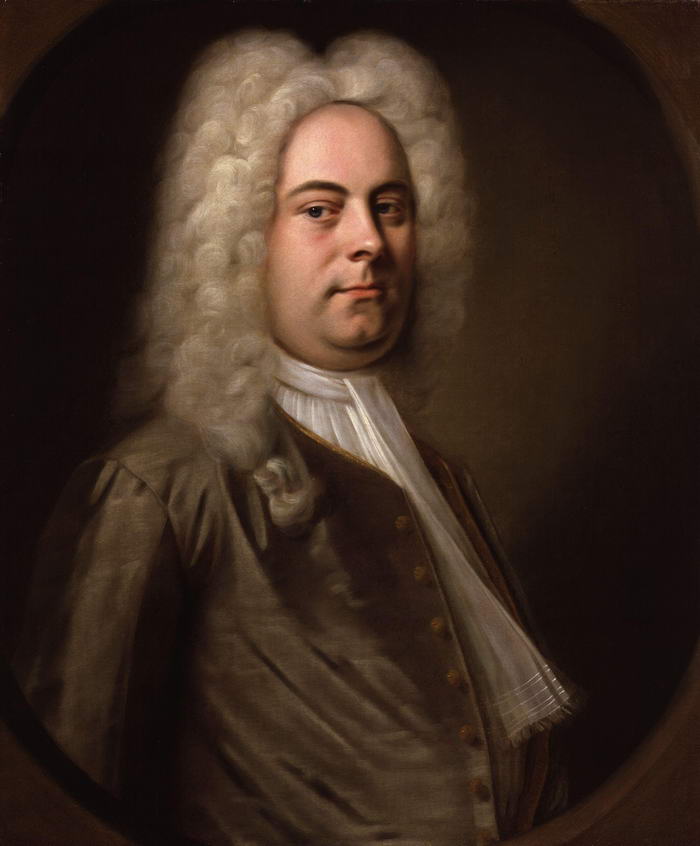
The Baroque era witnessed the rise of several musical giants, but few shone as brightly as George Frideric Handel. Born in 1685 in Halle, Germany, Handel showcased prodigious musical talent from an early age, despite his father’s wishes for him to pursue law.
Handel’s career was a tapestry of musical adventures. He traveled extensively, absorbing various musical styles, from Italy’s operatic traditions to England’s choral works. And it was in England that Handel truly flourished, eventually becoming a naturalized British subject.
One cannot speak of Handel without mentioning ‘Messiah.’ This oratorio, replete with its iconic ‘Hallelujah’ chorus, is a magnum opus that resonates with audiences even today. Apart from oratorios, Handel’s operas like ‘Julius Caesar’ showcased his ability to fuse drama with musical brilliance.
Yet, Handel’s life wasn’t without challenges. He faced financial troubles and even grappled with temporary blindness. But his indomitable spirit ensured that he continued composing, leaving behind a rich legacy that celebrated the influential composer he was.
07 – Joseph Haydn (1732-1809)
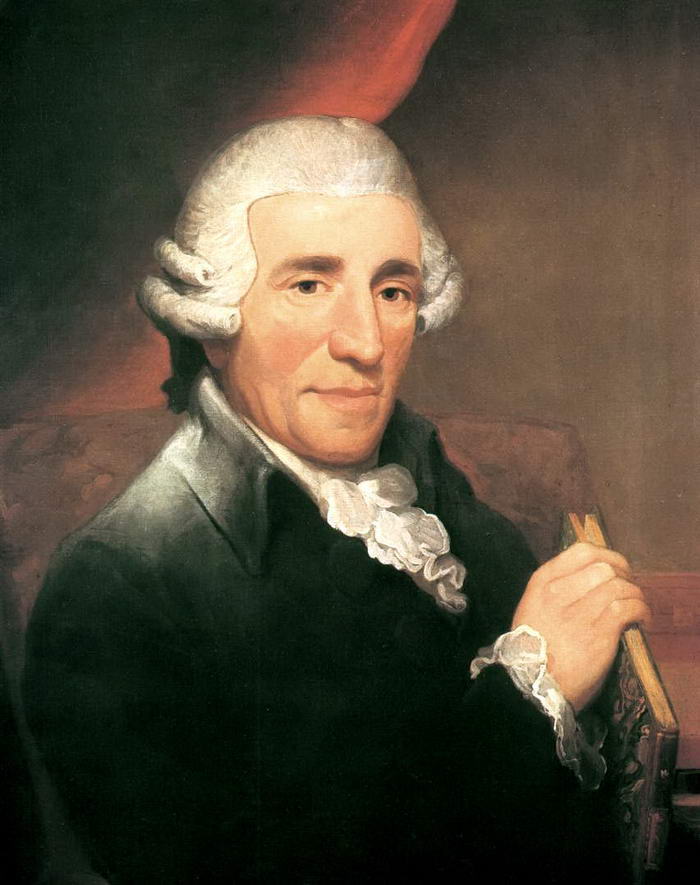
Heralded as the “Father of the Symphony” and the “Father of the String Quartet,” Joseph Haydn’s monumental contributions to the classical era are undeniable. Born in 1732 in Rohrau, Austria, Haydn’s life was a testament to hard work, innovation, and consistent evolution.
Haydn’s symphonic works, numbering over a staggering 100, are characterized by wit, innovation, and unparalleled structural clarity. Pieces such as the ‘Surprise’ Symphony and the ‘Farewell’ Symphony not only entertain but also capture the spirit of an era that was bursting with new musical ideas.
Beyond symphonies, Haydn was a pioneer in the realm of the string quartet. His works in this genre set the stage for future classical musicians and composers, providing a blueprint that many would follow.
Haydn’s lengthy employment with the Esterházy family allowed him the freedom to experiment, innovate, and perfect his craft. And perfect it, he did. By the time of his death in 1809, Haydn had indelibly shaped the course of Western music.
06 – Pyotr Ilyich Tchaikovsky (1840-1893)
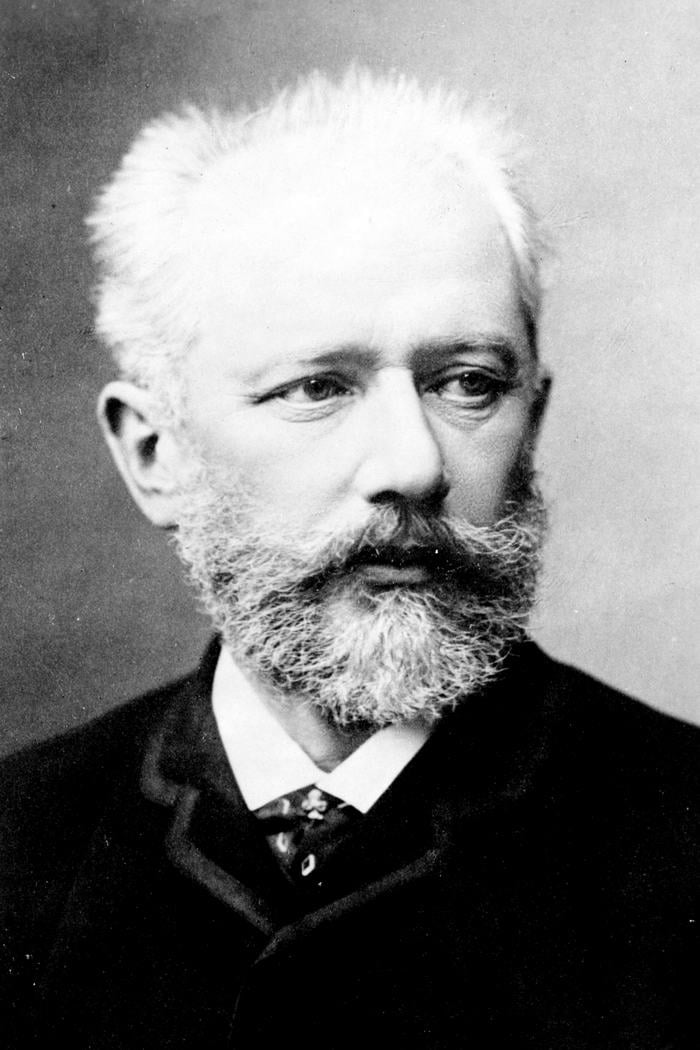
Russia’s most famous composer, Pyotr Ilyich Tchaikovsky, has graced us with some of the most emotionally charged and melodically rich compositions in music history. Born in 1840, Tchaikovsky’s life was a blend of triumphant highs and tumultuous lows.
Among his many iconic works, ‘The Nutcracker’ ballet stands tall, especially its “Dance of the Sugar Plum Fairy,” which has been a staple in crowded music concerts during the holiday season. Similarly, his ‘Swan Lake’ and ‘Sleeping Beauty’ are ballets that have enchanted generations.
Tchaikovsky’s symphonies, especially the Symphony No. 6 ‘Pathétique’, are profound emotional journeys. The ‘Pathétique’ is a raw exploration of the human soul, teeming with passion, melancholy, and a deep sense of introspection.
His personal life, marked by struggles with his sexuality and bouts of depression, often found an outlet in his music, making it deeply personal, raw, and touching. His passing in 1893 left a void in the world of music, but his compositions continue to move hearts around the world.
05 – Frederic Chopin (1810-1849)
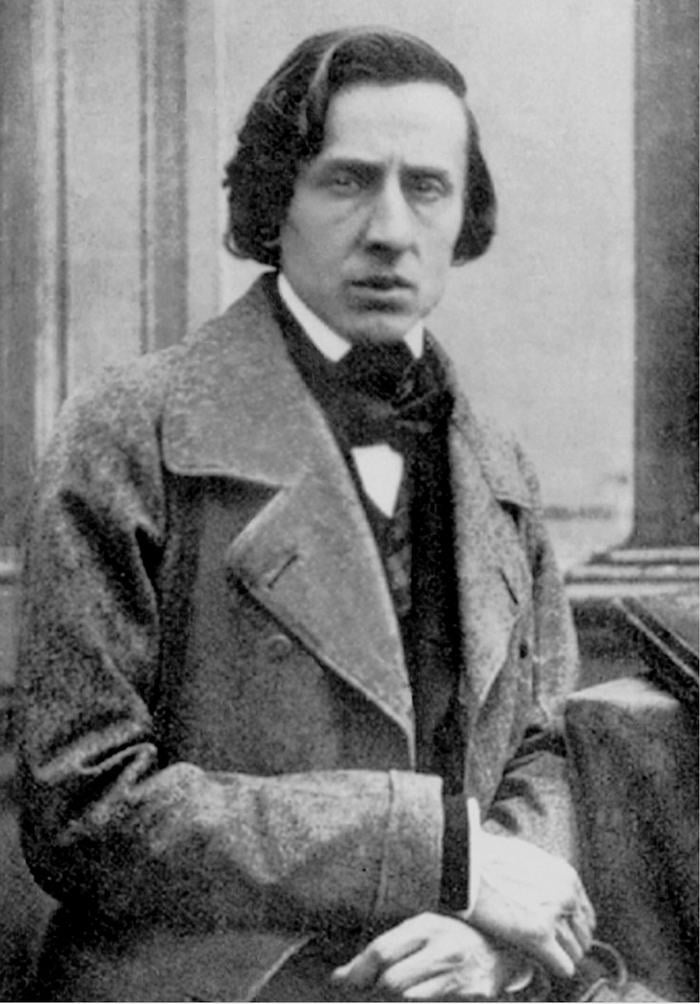
Often referred to as the “Poet of the Piano,” Frédéric Chopin’s music is a deep dive into romanticism and the vast realm of human emotions. Born in 1810 in Poland, Chopin’s life was one of fervent passion, both in love and in music.
Chopin’s compositions, primarily for solo piano, are nuanced tapestries of delicate melodies, intricate harmonies, and profound expressions. Pieces like the ‘Nocturnes’ and the ‘Ballades’ aren’t just music; they are reflections of the soul.
His contribution to the development of the piano sonata, mazurka, waltz, nocturne, polonaise, étude, and prelude is incomparable. Each piece, whether a sprightly mazurka or a brooding nocturne, paints a vivid picture, evoking varied emotions.
Though plagued by health issues throughout his short life, Chopin’s love affairs, especially with writer George Sand, and his fervent nationalism for Poland, often became the fuel for his compositions. Passing away at just 39, his influence as a classical composer resonates powerfully even today, proving the timeless nature of his oeuvre.
04 – Antonio Lucio Vivaldi (1678-1741)

Emerging from the Baroque era as one of its most illustrious representatives, Antonio Vivaldi shone brightly in a period renowned for its ornate artistic expressions. Born in 1678 in Venice, Vivaldi was not only a classical composer but also a violinist, teacher, and cleric.
Perhaps his most renowned composition is ‘The Four Seasons’, a group of four violin concertos, each giving a musical expression to a season. The cascading notes mimicking spring’s joyous arrival or the plucking strings representing winter’s chilling winds showcase his ingenious ability to paint nature’s tapestry through music.
Vivaldi’s vast oeuvre spanned various forms – from sacred choral works to more than 500 concertos. His distinct style, marked by its rhythmic energy and buoyant melodies, influenced countless composers, not least among them Johann Sebastian Bach.
Though he passed away in 1741, his influence and the rediscovery of his works in the 20th century affirm his standing as one of the greatest composers in history.
03 – Wolfgang Amadeus Mozart (1756-1791)

The prodigious Wolfgang Amadeus Mozart is often the first name that comes to mind when one thinks of famous composers. Born in 1756 in Salzburg, Austria, Mozart’s prodigious talent was evident early on. By the tender age of 5, he was already composing intricate pieces, setting the tone for a life dedicated to musical excellence.
From symphonies and sonatas to operas and concertos, Mozart’s prolific output is staggering. His operas, including ‘The Magic Flute’ and ‘Don Giovanni’, showcase his brilliance in crafting engaging narratives with memorable melodies.
Yet, it’s not just the volume but the depth of his works that is truly awe-inspiring. Compositions like ‘Requiem’ and Symphony No. 40 in G minor are testaments to his genius, displaying complex structures, emotional depth, and a mastery over orchestration.
Tragically, Mozart’s life was cut short at 35, but in that brief span, he altered the course of music, laying foundations for the Romantic era that followed the Classical.
02 – Ludwig van Beethoven (1770-1827)

From the Classical to the Romantic, Ludwig van Beethoven stands as a towering figure, a bridge between two critical eras in music. Born in 1770 in Bonn, Germany, Beethoven’s life is a testament to resilience, innovation, and sheer genius.
His symphonic works, particularly Symphony No. 5 with its iconic four-note opening, and Symphony No. 9 ‘Choral’, are monumental in scope and impact. The latter’s final movement, featuring the ‘Ode to Joy’, is a paean to human spirit and unity.
Beethoven’s string quartets, piano sonatas (like the ‘Moonlight Sonata’), and his sole opera ‘Fidelio’ further amplify his diverse talent. What makes his accomplishments even more remarkable is the personal adversity he faced, notably his progressive hearing loss, which rendered him completely deaf in his later years.
Yet, despite this seemingly insurmountable challenge, Beethoven’s passion never waned. His late works, characterized by their complexity and introspection, are a testament to a man who refused to be defined by his limitations.
Beethoven’s indomitable spirit and his unmatched legacy make him not just a classical musician but a symbol of perseverance, making his mark on both music and the annals of human achievement.
01 – Johann Sebastian Bach (1685-1750 )

In the realm of classical music, Johann Sebastian Bach reigns supreme, echoing timeless brilliance. Born in 1685 in Eisenach, Germany, Bach was part of a family deeply rooted in music. However, he distinguished himself with compositions that went beyond the conventions of his time.
Bach’s music represents the pinnacle of the Baroque period, where intricate melodies and counterpoint combine in perfect harmony. His keyboard mastery is evident in works such as the ‘Well-Tempered Clavier’ and the ‘Goldberg Variations’. For many aspiring musicians, these compositions represent the zenith of keyboard technique and musical depth.
Choral compositions like ‘Mass in B minor’ and ‘St Matthew Passion’ provide glimpses into Bach’s profound religious convictions and his unparalleled ability to convey deep emotions through music. As an organ virtuoso, his fugues and cantatas were not just compositions; they were spiritual journeys.
Bach’s influence is profound, serving as an inspiration for countless composers who followed. His innovative approach to harmony, structure, and melody laid the groundwork for the evolution of Western music.
In a world of ever-changing musical landscapes, Bach’s legacy remains untouched, affirming his position as the most eminent among the most famous composers of all time.
The Symphony of Skills: What It Takes to Compose
Let’s address the elephant in the room – what skills does a composer need to craft masterpieces that stand the test of time? At the heart of every great composer lies an understanding of music that goes beyond the ordinary. They’re maestros in music theory, understanding the nuances that can make or break a piece. But the technicalities are just one side of the coin.
Vision and creativity are equally pivotal. The greatest composers didn’t just write music; they told stories, painted scenes, and evoked emotions. Their deep understanding of instruments, from the gentle lull of a violin to the passionate call of a trumpet, enabled them to create soundscapes that remain unparalleled.
Of course, resilience cannot be overlooked. The world of music, especially for a classical composer, is fraught with challenges. Scrapping entire sections, countless revisions, and often a barrage of criticism – yet they persevered, driven by their passion and commitment.
Conclusion: The Maestros and Their Legacies
Music, in its myriad forms, is a reflection of its creators. So, why is a composer important? Simply put, they are the architects of the auditory wonders we cherish. Their unique blend of creativity, skill, and vision has given us pieces that have been celebrated for generations.
But here comes a tricky question: Why are most famous composers men? History, unfortunately, has often been unkind to women. Societal norms, skewed opportunities, and a lack of recognition meant many female composers remained in the shadows, their works either attributed to male counterparts or forgotten altogether. Yet, the tides are turning, and today, efforts are being made to recognize and celebrate female composers and their invaluable contributions.


